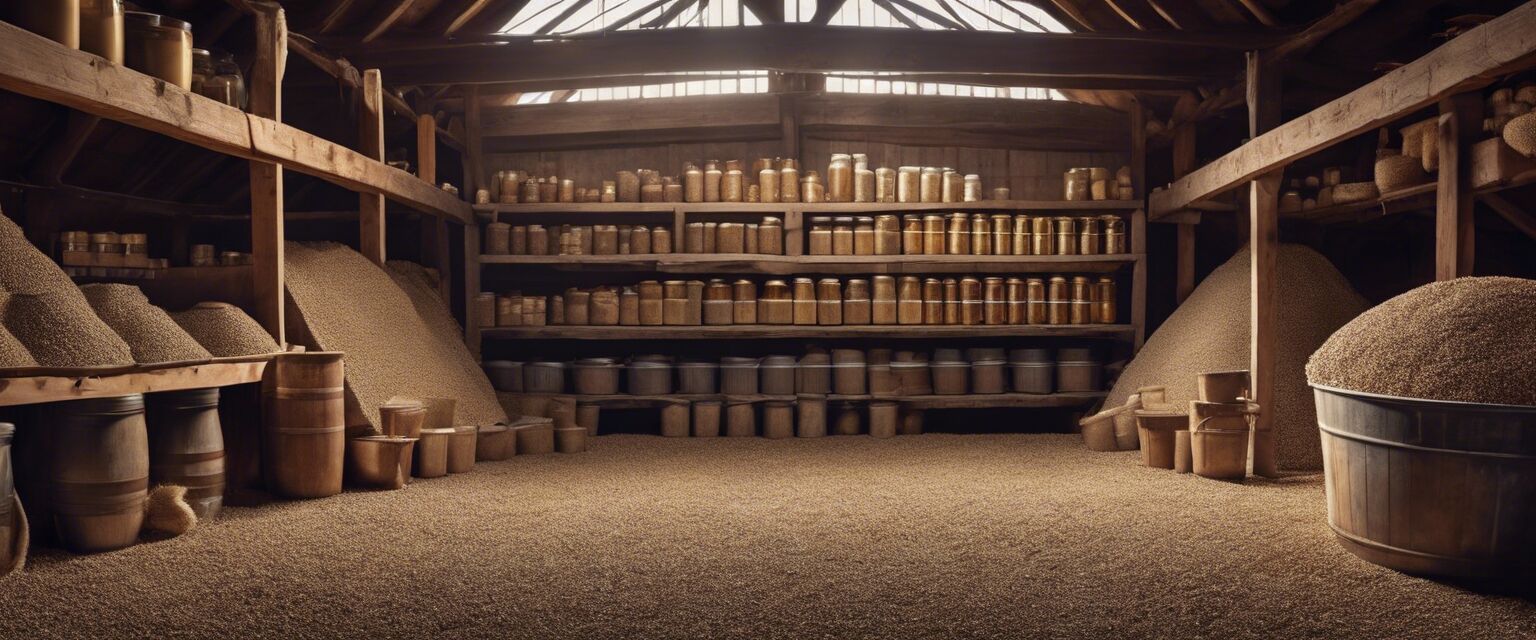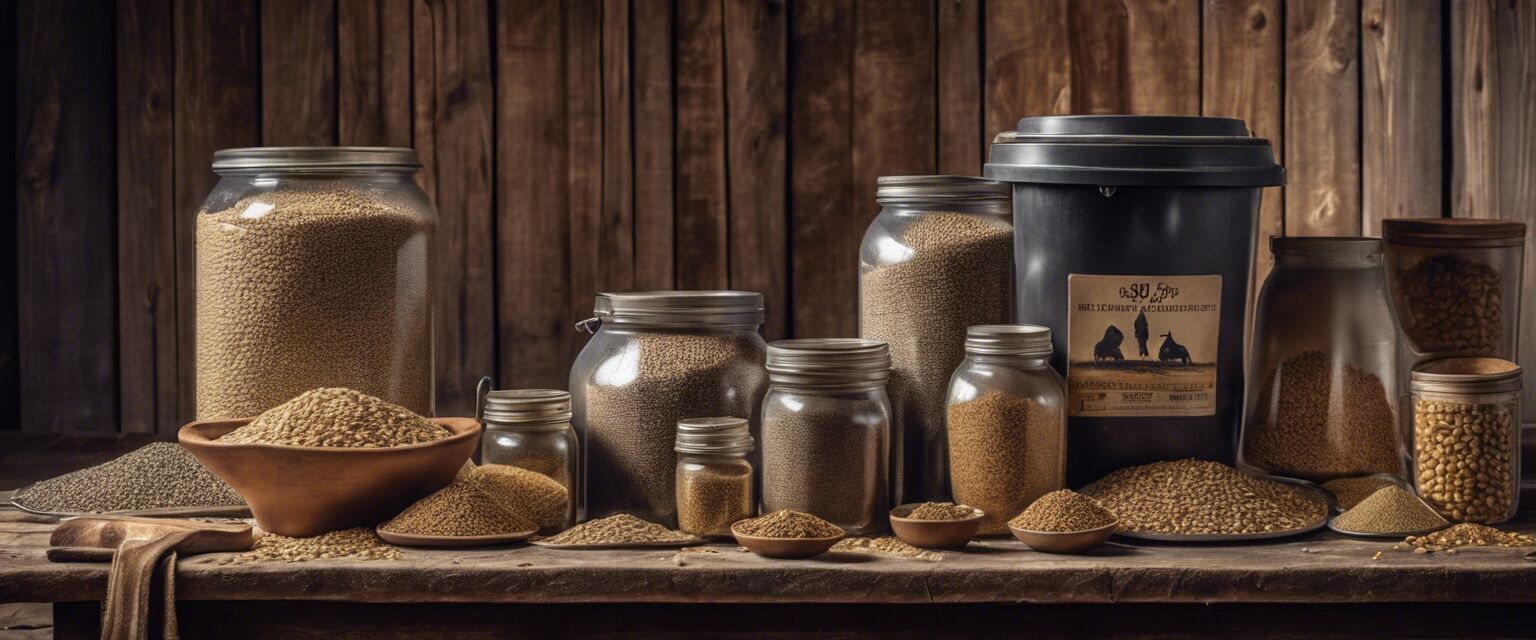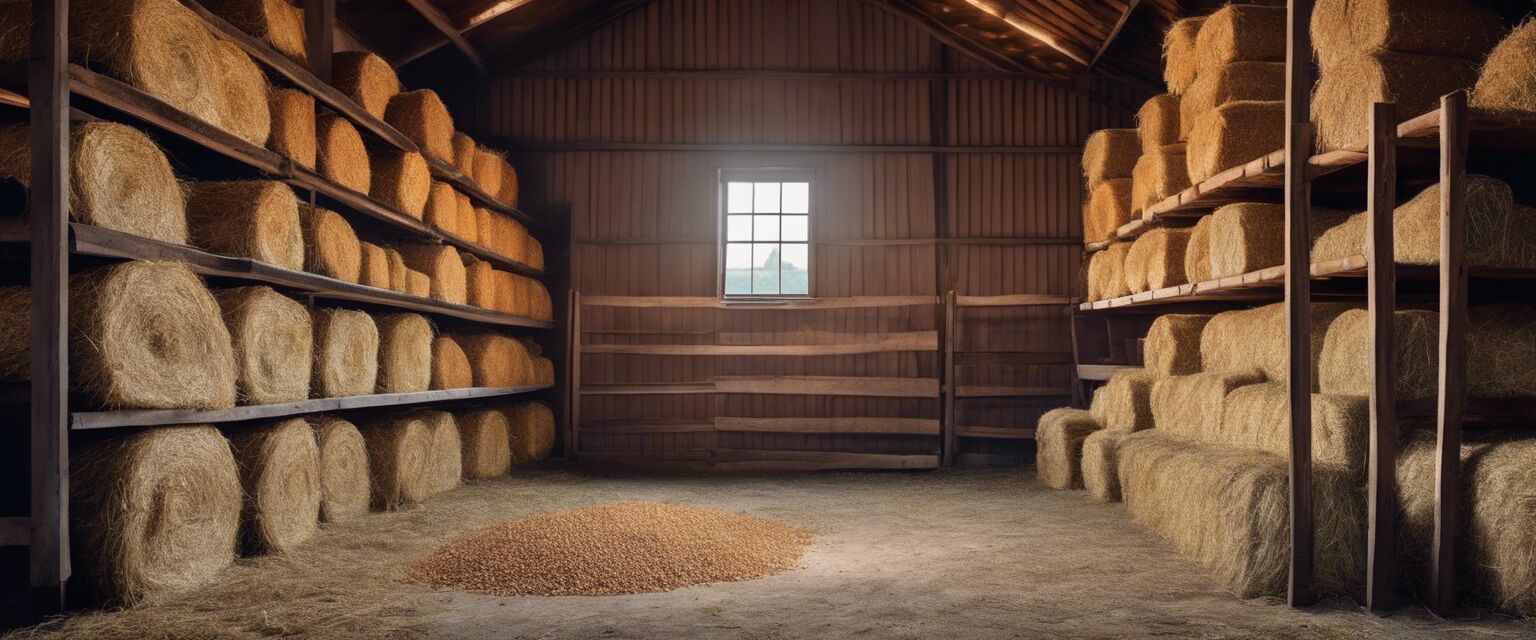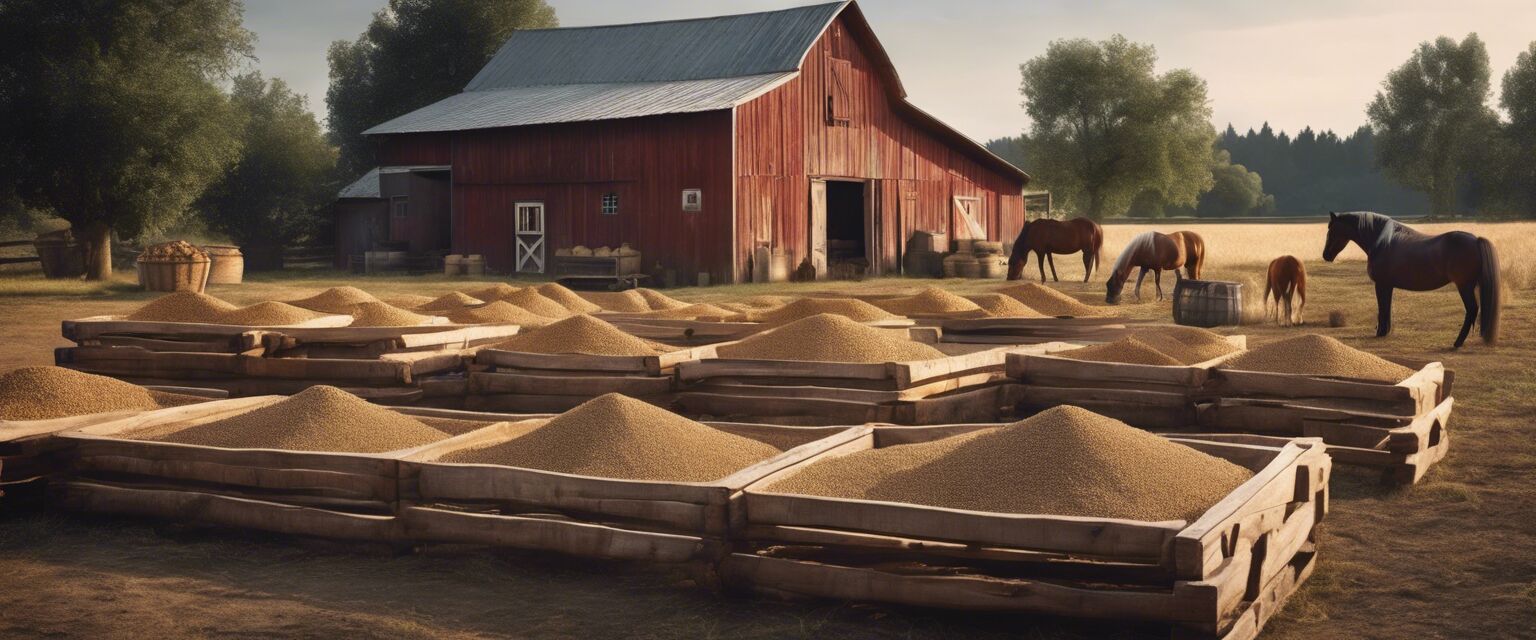
Basic Horse Nutrition
Key Takeaways
- Horses require a balanced diet consisting of hay, grains, and supplements.
- Essential nutrients include carbohydrates, proteins, fats, vitamins, and minerals.
- Feeding strategies should consider the horse's age, weight, workload, and health status.
- Regular assessments of your horse's dietary needs can ensure optimal health.
Horses are magnificent creatures that thrive on various nutrients essential for their overall well-being. Understanding the fundamental principles of horse nutrition will not only help enhance your horse's performance but also ensure longevity and good health. In this guide, we will explore the different types of nutrients, their requirements, and feeding strategies tailored for your equine friend.
Essential Nutrients for Horses
Horses require a range of nutrients to maintain their health. Let's break it down into five essential categories:
| Nutrient | Function | Sources |
|---|---|---|
| Carbohydrates | Primary energy source | Grains, hay |
| Proteins | Muscle development and repair | Legumes, grains, supplements |
| Fats | Energy storage and absorption of vitamins | Vegetable oils, supplements |
| Vitamins | Regulate body functions | Fresh forage, supplements |
| Minerals | Bones, teeth, and metabolic functions | Salt blocks, mineral supplements |
Understanding Nutritional Requirements
The nutritional needs of horses vary based on several factors:
- Age: Young horses need higher protein and energy.
- Weight: Heavier horses require more food to maintain optimal body condition.
- Workload: Performance horses need more energy than light work or idle horses.
- Health status: Horses with health issues may need special diets.
Age-Grouped Nutritional Needs
| Age Group | Protein (%) | Energy (Mcal/kg) |
|---|---|---|
| Foals | 14-18 | 1.4-1.7 |
| Yearlings | 12-15 | 1.2-1.5 |
| Adult Horses | 8-12 | 0.9-1.2 |
| Senior Horses | 10-14 | 0.7-1.1 |
Feeding Equipment
Choosing appropriate feeding equipment ensures that your horse receives its nutrition without wastage. Some good options include:
- Feeding buckets
- Hay nets
- Automated feeders
- Grass trays
For more on feeding equipment, check out our Feeding Equipment section.
Feeding Strategies
Implementing effective feeding strategies contributes significantly to a horse's health:
- Feed consistently at the same times each day.
- Monitor body condition regularly.
- Adjust feeding based on seasonal changes.
- Allow for adequate forage before concentrated feeds.
To learn more about strategies, visit our Feeding Strategies page.
Supplementing Your Horse's Diet
While a balanced diet can meet most horses' needs, supplements can help address specific deficiencies:
- Electrolytes: For hydration during intense exercise.
- Joint supplements: To support mobility in older horses.
- Calming supplements: For anxious horses.
Explore our collection of supplements on the Supplements page.
Feeding Hay and Forage
Hay and forage make up the majority of a horse's diet. Here are a few common types:
- Timothy hay
- Alfalfa hay
- Orchard grass
- Oat hay

Choosing the Right Hay
When selecting hay, keep the following in mind:
- Look for bright color and smell for freshness.
- Check for mold or dust.
- Choose grass hay for maintenance, alfalfa for high energy needs.
Monitoring Your Horse's Health
Regularly assess your horse's body condition and health to ensure its nutritional needs are met. Signs to look out for include:
- Weight gain or loss
- Changes in coat condition
- Behavioral changes
Common Nutritional Issues
Horses can face various nutritional problems, including:
- Obesity: Can lead to laminitis and other health issues.
- Colic: Often caused by rapid changes in diet.
- Deficiencies: May result from imbalanced diets.
Conclusion
Understanding the basic principles of horse nutrition is vital for every horse owner. By focusing on balanced diets, essential nutrient supply, and effective feeding strategies, you can ensure your horse remains healthy and performs at its best. For further guidance, check out our Health & Nutrition resources.
Pros
- Improved performance in working horses.
- Enhanced overall health and longevity.
- Better management of weight and condition.
Cons
- Requires knowledge of nutritional needs.
- Potential for over-supplementation.
- Can be costly to maintain a balanced diet.










